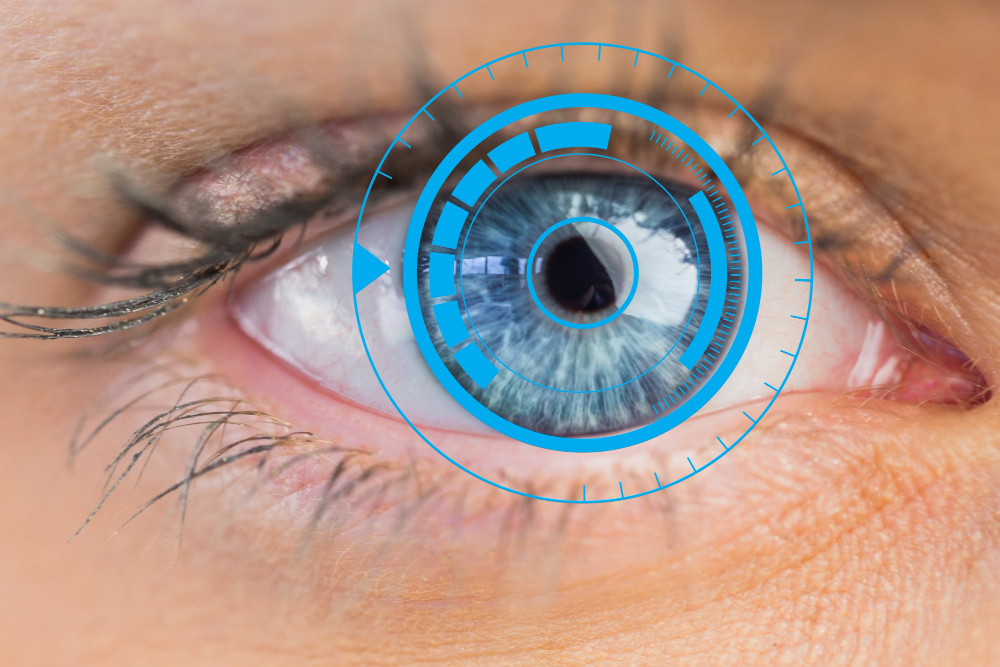Best Cataract Operation in Kolkata
cataract operation in Kolkata, the clouding of the eye’s natural lens, can cast a shadow on the world, making everyday tasks a challenge. However, in the bustling city of Kolkata, there is a glimmer of hope for those grappling with cataracts. This comprehensive guide aims to shed light on cataract operations in Kolkata, from understanding cataracts to finding the right surgeon, surgical techniques, and post-operative care. By the end, you’ll have the knowledge needed to embark on your journey towards clearer vision.
Understanding Cataracts
What Are Cataracts?

Cataracts are a common eye condition characterized by the gradual clouding of the eye’s natural lens. They can lead to blurred vision, difficulty perceiving colors, and increased sensitivity to glare. While cataracts often develop with age, they can also result from factors like genetics, injury, or medical conditions.
The Impact of Cataracts on Daily Life
Living with cataracts can significantly affect one’s quality of life. Simple activities like reading, driving, or recognizing faces become challenging. Imagine not being able to enjoy the vibrant streets of Kolkata due to impaired vision. It’s a reality for many, cataract operation in Kolkata, but cataract surgery offers a way back to a clear and vivid world.
Seeking Treatment in Kolkata
Kolkata has gained a reputation for providing world-class healthcare services. When it comes to cataract treatment, the city boasts state-of-the-art facilities and experienced surgeons. This means that if you’re considering cataract surgery, Kolkata is a promising destination.
Finding the Right Surgeon
The Importance of Choosing Wisely
Selecting the right cataract surgeon is paramount to the success of your operation. Your surgeon will guide you through the process, from the initial assessment to the surgery itself and the post-operative care. So, how do you make this crucial choice?
Research and Recommendations
Start by conducting thorough research on eye clinics and cataract operations in Kolkata. Seek recommendations from friends, family, or your regular eye doctor. Word-of-mouth referrals can provide valuable insights into the quality of care provided.
Credentials and Experience
Once you have a list of potential surgeons, dig deeper into their qualifications and experience. Verify their credentials, cataract operation in Kolkata, certifications, and the number of successful cataract surgeries they have performed. An experienced surgeon instills confidence and ensures a smoother surgical process.
Cataract Operation Techniques in Kolkata
Phacoemulsification
Phacoemulsification, often referred to as “Phaco,” is one of the most common cataract surgery techniques. It involves using ultrasound energy to break up and remove the cloudy lens, allowing for the insertion of an artificial intraocular lens (IOL). This minimally invasive procedure ensures a quick recovery and minimal discomfort.
Femtosecond Laser-Assisted Cataract Surgery (FLACS)
FLACS is another advanced technique available in Kolkata. It utilizes a laser to perform key steps in cataract surgery with unparalleled precision. While it offers several advantages of cataract operation in Kolkata, including reduced surgical time and improved visual outcomes, your surgeon will discuss whether it’s the best option for you.
Preoperative Assessment
Before your cataract surgery, you’ll undergo a comprehensive preoperative assessment. During this evaluation, your surgeon will assess the severity of your cataracts and determine the most suitable surgical approach. This step is crucial for customizing the procedure to your specific needs.
The Cataract Surgery Process

Anesthesia and Recovery
Cataract surgery is typically performed under local anesthesia, ensuring you remain comfortable throughout the procedure. The surgery itself is swift, often taking less than 30 minutes, cataract operation in Kolkata. Following surgery, you’ll spend a short time in the recovery area to monitor for any immediate complications. Most patients experience improved vision within a few days to a week.
Post-operative Care
The success of your cataract surgery in Kolkata relies heavily on your commitment to post-operative care. Your surgeon will provide specific instructions regarding the use of prescribed eye drops, restrictions on strenuous activities, cataract operation in Kolkata, and the schedule for follow-up appointments. Adhering to these guidelines is vital for a smooth recovery and optimal visual outcomes.
Life After Cataract Surgery
With successful cataract surgery, you’ll experience a transformation in your vision. Colors will appear more vibrant, and everyday activities will become more enjoyable. Embrace this newfound clarity and look forward to a life free from cataracts.
Cataract Operation in Kolkata Related Frequently Asked Questions (FAQ)
Q1. Is cataract surgery painful?
No, cataract surgery is not painful. It is performed under local anesthesia, ensuring you are comfortable throughout the procedure.
Q2. How long does it take to recover from cataract surgery?
Most patients experience improved vision within a few days to a week after cataract surgery.
Q3.Are there any risks associated with cataract surgery?
Like any surgical procedure, cataract surgery carries some risks. However, complications are rare, and your surgeon will discuss these with you beforehand.
Q4. Can cataracts return after surgery?
No, cataracts cannot return once they have been surgically removed. However, a condition known as posterior capsule opacification can develop and is easily treatable.
Q5. How do I choose the best surgeon for my cataract surgery in Kolkata?
Research extensively, seek recommendations, and verify the surgeon’s qualifications and experience to make an informed decision.
Q6. What is the cost of cataract surgery in Kolkata?
The cost of cataract surgery in Kolkata can vary widely depending on factors such as the type of surgery, the choice of hospital or clinic, and the specific requirements of the patient. On average, cataract surgery in Kolkata may range from INR 10,000 to INR 50,000 or more per eye. It’s essential to consult with a healthcare provider or eye surgeon in Kolkata for an accurate cost estimate based on your individual needs.
Q7. What are the 3 types of cataract surgery?
The three types of cataract surgery are:
- Phacoemulsification
- Extracapsular Surgery
- Intracapsular Surgery
Q8. What does a cataract operation cost?
The cost of a cataract operation can vary widely depending on factors like location, surgeon’s fees, type of procedure, and insurance coverage. On average, it can range from $2,500 to $5,000 per eye without insurance.
Q9. Is cataract surgery 100% safe?
Cataract surgery is generally considered safe, but like any medical procedure, it carries some risks. The safety and success of the surgery depend on various factors, including the patient’s overall health and the skill of the surgeon. While complications are relatively rare, they can occur. It’s essential to discuss the risks and benefits of cataract surgery with your eye doctor to make an informed decision about the procedure.
Conclusion
In conclusion, cataract surgery in Kolkata offers a path to brighter, clearer vision. With skilled surgeons, advanced techniques, and diligent post-operative care, you can bid farewell to cataracts and embrace the vibrant world of Kolkata with renewed clarity. Don’t let cataracts dim your view of this incredible city; take the first step towards visual freedom today. For more information and access to experienced cataract operations in Kolkata,
Types of Cataract
Childhood Cataracts
Congenital cataracts are generally present at birth or may develop within the first year of life. It may be found in one or both eyes. Cataract operation in Kolkata, congenital cataracts may present in various forms, like, lamellar, sutural, coronary, polar, cerulean, nuclear, capsular, complete, and membranous. Lamellar is the most common type.
Age-Related Cataracts:
Age-related cataracts are of three types:
Nuclear Cataract:
This occurs when the opacity involves primarily the nucleus of the lens. Usually involves both eyes but may be asymmetrical. In its advanced form, it becomes hard and brown in color, called brunescent cataracts.
Cortical Cataract:
Cortical cataracts form due to local swelling and disruption of lens fibers. It can involve both eyes but may be asymmetrical. Its effect on vision depends on its location in relation to the visual axis. It can commonly cause glare. Progression of cortical cataracts may be variable. In the advanced stages, it may progress from mature to premature and ultimately to the Morgana forms.
Posterior sub-capsular cataract:
As the name suggests, it is located in the posterior cortical layer. Becomes visually significant when it involves the visual axis. Cataract operation in Kolkata is often seen in the relatively younger age group. Symptoms of glare and poor vision in bright light conditions are typical. Near vision may be significantly reduced.
Drug-Induced Cataract:
Some commonly used drugs may induce cataract formation. Corticosteroids, Phenothiazines, Miotics, Amiodarone, and Tamoxifen are a few typical examples.
Traumatic Cataract:
Traumatic cataracts may occur due to physical forces (blunt or penetrating trauma), chemicals, radiation (ionizing radiation, infrared radiation, ultraviolet radiation), and electric current.
Metabolic Cataract:
The common causes of metabolic cataracts are, Diabetes Mellitus, Galactosemia, Hypocalcemia, Wilson Disease, and Myotonic Dystrophy, and cataract operation in Kolkata.
Miscellaneous causes:
Nutritional deficiencies, excessive alcohol consumption, and smoking are important avoidable risk factors. Cataracts may also be associated with Uveitis, pseudo-exfoliation syndrome, and Atopic Dermatitis.